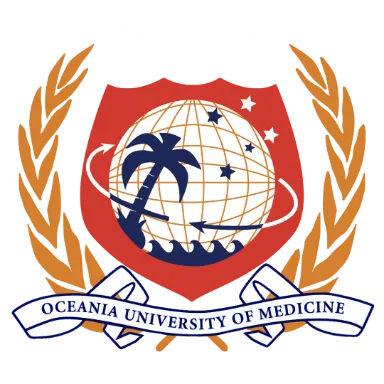Kudos to the progress you have made on your medical school application. You have gathered and submitted all of the documents, from transcripts and letters of recommendation, to your essay and application fee.
It is now time to take your commitment to the next level, to confirm your desire to study and practice medicine — convincing members of the Oceania University of Medicine faculty, the Admissions Committee, that you are up for the challenge and worthy to be a member of the OUM Alumni Association in a few years.
Step away from your CV, for a moment
This is your opportunity to highlight more than the academic track record, which is well documented throughout your CV and application, by honing in on the personal qualities that have drawn you to medical school and to a new career in patient care or one where the care you will provide to your patients will move to a much higher level.
“Understand that an Admissions Panel has a number of goals during an interview,” says Khrystal Boone-Robinson, MD, OUM’s Dean for North America and a key member of the Admissions Committee. “First, they are assessing an applicant’s personal qualities well beyond academics. Interviews help us evaluate your communication skills, empathy, professionalism, your decision-making skills, and your ethics,” she says.
Dean Boone-Robinson (pictured right) emphasizes that interviewers seek to understand your motivations for pursuing a medical degree, your healthcare experience (if applicable), and your future goals and plans for practice upon graduation. She also advises that you thoroughly familiarize yourself with the curriculum you’re about to embark on. This includes not only the coursework but also the medical school’s mission, research opportunities, student resources, extracurricular and volunteer activities, and any unique aspects of the program that align with your interests.
“It is important that you understand our hybrid curriculum delivery as we need to know if you are a good fit for a distance-learning environment that requires a certain degree of self-motivation and drive to learn outside a typical classroom environment,” says Dean Boone-Robinson. “We’re looking to see if your values align with our mission and if you are ready for the challenges faced by a largely non-traditional student body, many already amid a successful first-career, readying to embark on a new chapter with colleagues residing in numerous global locations.”
Non-traditional students require additional support and preparation
OUM’s typical applicant has more life experience, work experience, and family responsibility than a traditional medical student, some having spent 20-plus years as a healthcare practitioner, many with home lives ranging from caring for aging parents to being parents to toddlers, says Mary Gizzie, OUM Admissions Counselor.
“Consequently, our faculty has interest in your industry perspective, but they also want to see that applicants understand a physician’s role in healthcare as they move toward this profound career change. They want to see that you understand the differing point of view you are preparing to adopt in going from a paramedic or registered nurse to becoming a physician. Interviewers also need to know that you have a clear understanding of the medical school journey ahead, the associated implications both personally and financially, and have made provisions to strengthen your support network during your medical school years,” she says.
On the day of the Interview . . .
- Dress Professionally: Yes, even for Zoom interviews. Choose attire that is conservative, professional, and comfortable. Dressing appropriately demonstrates respect for the interview process and the profession.
- Arrive Early: “Join the Zoom meeting early and wait in the waiting room, while there you can test your sound and camera are working well. Make sure you are in a well-lit, quiet, and professional area for the interview,” says Shandah Gordon, OUM Admissions Counselor. “Punctuality and being organized reflects on your reliability and your respect for these members of your future profession,” she adds.
- Be Engaged and Authentic: Engage actively during the interview by maintaining eye contact, listening attentively, and asking thoughtful questions about the program. Authenticity is key—be true to yourself while presenting your best qualities and experiences.
After the interview, take time to reflect on what went well and what may need some rethinking before your next interview (med school applicants are typically invited to 1-3 interviews). Also take time to send personalized thank you notes/emails to your interviewers, thanking them for the opportunity and reaffirming your interest in the program.
Getting ready for a medical school admissions interview requires self-reflection and thorough preparation. At OUM, we seek candidates who have clearly thought about the challenges ahead, and have discussed them with friends and family members who will also be “taking this journey” along with them. Over the years, we have learned that successful students have strong support systems, which only occurs with open discussion and preparation, much like successful interviews.
Embrace an interview’s opportunity to showcase your passion for medicine, your commitment to quality patient care, and readiness to contribute to your local medical community. With diligent preparation and a positive mindset, you are well-positioned to succeed in your medical school journey.




